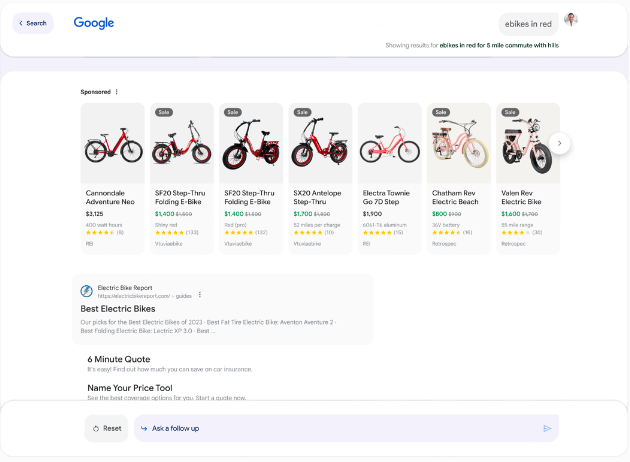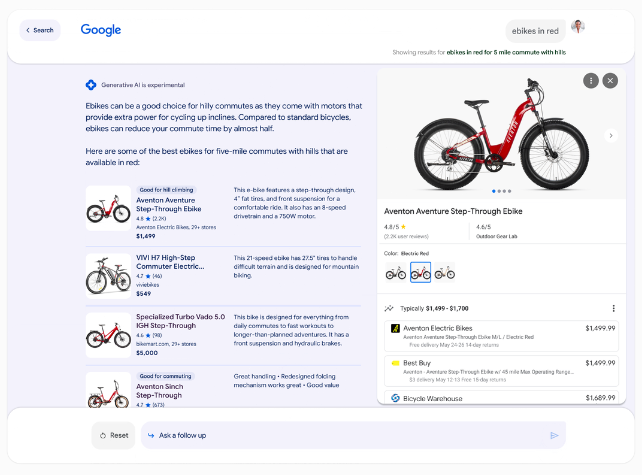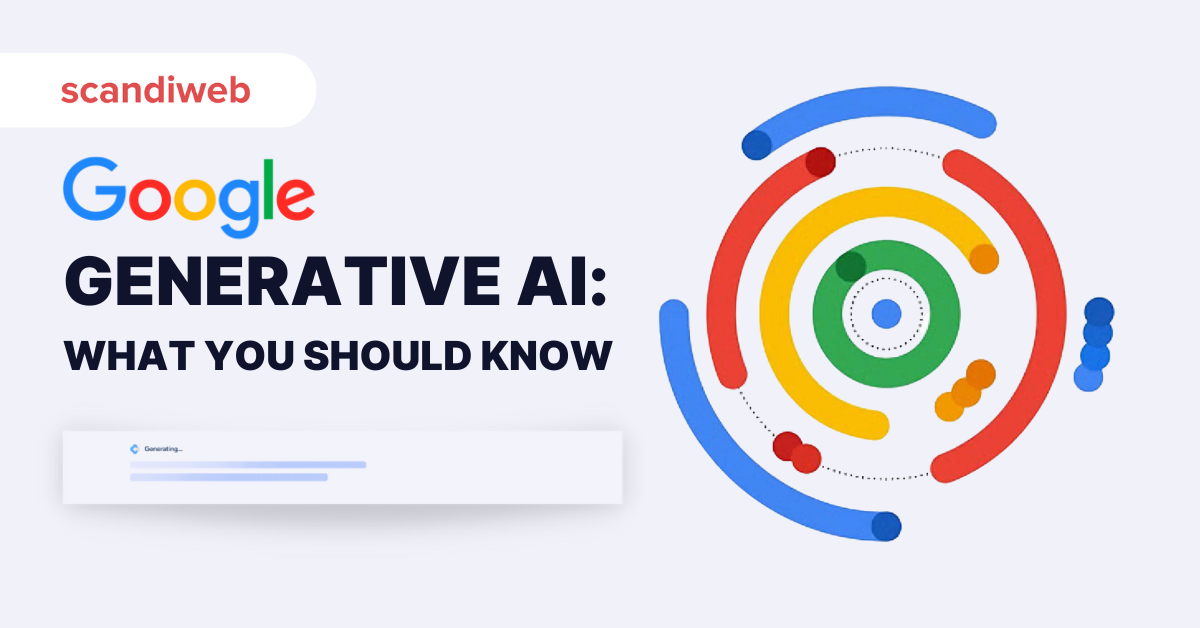Understanding user behavior in search engines has always been complex. But what happens when a growing number of searchers opt not to click at all? Which is a trend that has been happening. The implications of this shift make you wonder about the true dynamics between users, content creators, and search engines.
Recent technology experiments by Google Labs provide insights into the direction the search giant is heading, hinting at an SEO future dominated by zero-click searches. Forward-thinking marketers and managers are raising questions about how this innovative tech will reshape search results and user experiences. What do we know so far? Where is eCommerce search heading? Let’s discuss all the new terms and what you should expect.
What is zero-click Google search?
Zero-click search is a term that has been making waves in digital information retrieval and SEO. It occurs when users receive answers to their search queries directly on the search engine results page without needing to click any of the links presented. These answers can be:
- text snippets
- informative headlines
- interactive maps
- localized listings,
providing users with immediate and relevant information at their fingertips.
Approximately half of all Google searches fell into the category of zero-click searches, as found in a 2022 study by Semrush. This trend has been largely propelled by the emergence of Generative AI (GenAI) technology and the competitive pressure it has caused. Incorporating AI SEO services can help your content rank in these zero-click results.
If you’re looking to stay ahead, AEO services can optimize your strategy and get your content into those zero-click results faster.
What is Generative AI and Search Generative Experience?
With continuous breakthroughs in AI, Google is also exploring new ways search engines can work. Generative AI aims to unlock new types of questions users never thought search could answer and transform how information is organized.
As opposed to being a static answer, GenAI provides a dynamic response by gathering insights from multiple sources. It introduces an interface that encourages users to delve deeper with follow-up questions while maintaining contextual continuity. While links to additional content are available, they take a back seat to the primary focus of delivering a comprehensive and user-friendly search experience, or as Google calls it—Search Generative Experience (SGE).

Search results pages are moving in the direction of a new layout. Screen real estate, once dominated by organic and paid search results, now allows for various Google search features. Building upon the already familiar featured snippets, SGE leverages the same algorithm to generate informative text, offering users a snapshot of essential information with avenues to explore more.
What does this mean for eCommerce?
Now, instead of mostly paid ads and high-ranking pages, shoppers will see a comprehensive GenAI view on the first page of search results to help make their purchase decisions. When seeking a product, they’ll receive a selection of fitting products derived from Google’s Shopping Graph with 35+ billion product listings.


Similar to algorithm updates from Google that come with a fair share of challenges, the introduction of GenAI holds the potential to be greatly disruptive. It will require new and innovative strategies for on-page and off-page SEO.
Changes in content strategy
Businesses can likely anticipate a drop in organic traffic (estimated to range from 15-25%). Marketers will need to strategize and produce content that excels in the SGE and entices clicks. This may entail a move towards other forms of media, such as video or podcasts. It could also involve focusing on independent research, crafting unique perspectives that GenAI can reference.
More competitive paid search
SGE results pages include fewer ads above the fold compared to traditional results pages (1.2 ads vs. 2.4 ads). Google is unlikely to willingly decrease its ad revenue from search unless compelled by competitors, which is why alternative search platforms might potentially prompt Google to reconsider its approach.
But even if there are more ad slots, it probably won’t be enough—companies should establish other paid search channels to avoid the stiff competition.
How should you prepare?
At this point, ensuring organizational readiness is paramount. eCommerce managers should develop a comprehensive plan to understand the potential impact on growth goals in 2024. Marketing leaders must steer their teams towards proactive research of new strategies and testing.
Practical steps you can take
- Explore SGE in Google Search Labs and check your ranking
- Encourage team members to familiarize themselves with the tool
- If you’re working with an agency, actively participate to ensure your search strategy remains current
- Research alternative paid channels
- Outline your most important keyword clusters
- Analyze the impact on lead volume and revenue by understanding the role of SEO and Search Engine Marketing in your overall strategy,
at least for starters, so you remain afloat in this zero-click world.
You don’t have to enter this shift alone! Our SEO team is constantly updating strategies to adapt to evolving search engine requirements and new updates. Reach out if you have any questions, and we’ll be happy to analyze your website, provide suggestions, and help you navigate this change!



Share on: